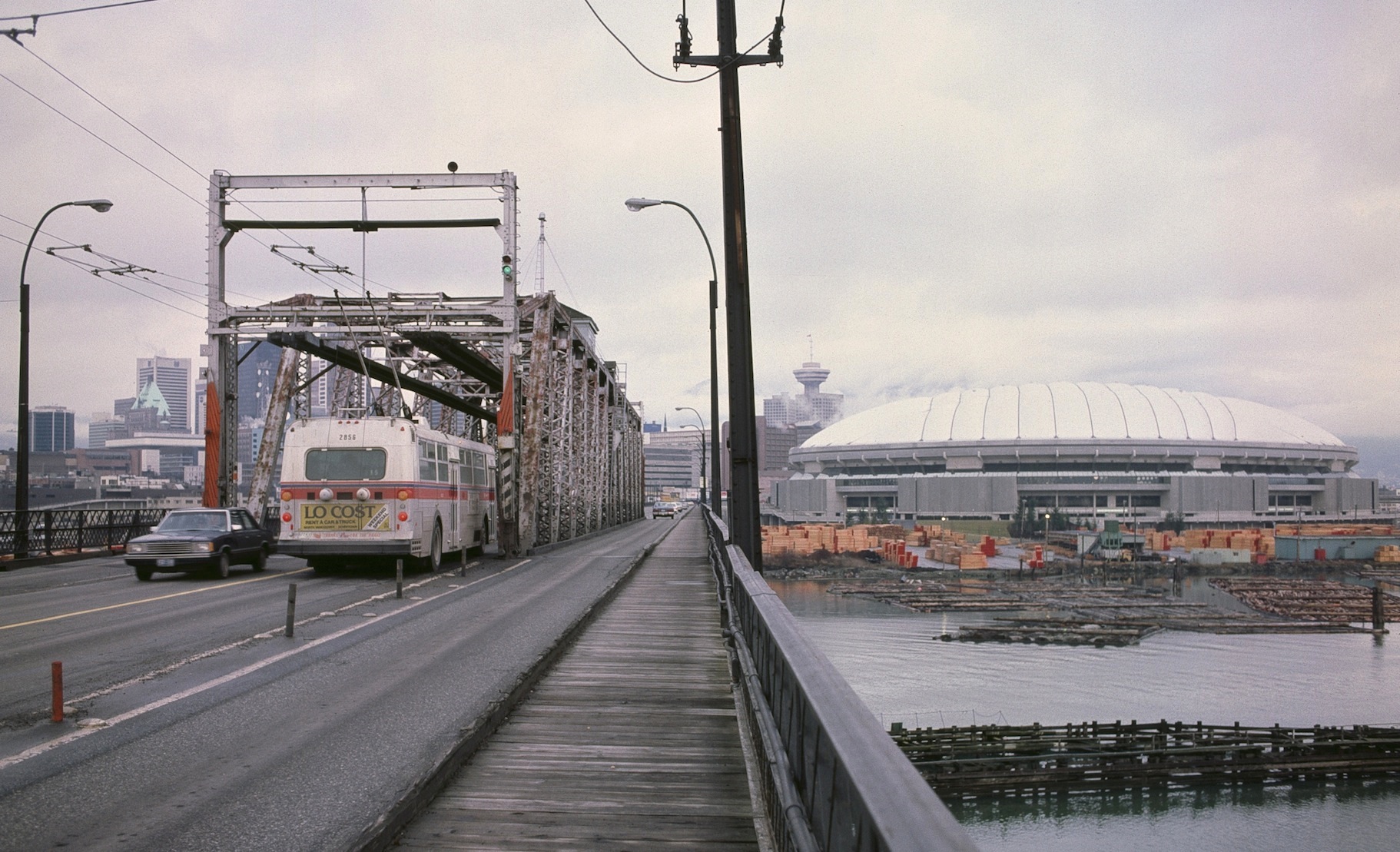Authenticity, the blog of the City of Vancouver Archives, has this today. Thanks to writer Sharon Walz.
Fascinating photo: note the stadium amid the piles of lumber and log booms in areas where seawalls, parks and boat parking exist today. I like the modern-day version of this area much better — excellent planning, I’d say.We are pleased to announce that we are now able to make available a significant volume of records from the City’s Planning Department. The Department has been responsible for land use planning, administering the Zoning and Development By-law and administering development services since 1952. . .
. . . These records cover some of the critical issues that faced the City’s development in the second half of the 20th century, and we hope you find the records provide valuable background information behind the decisions that have shaped the City for the last 60 years.














Nicer today indeed, but remember that those piles of lumber represented unionized, well-paid jobs in a city where workers could afford housing.
Michael – right on about those union jobs. Some years ago, Ray Spaxman and a few other planners tracked residential assessment values in Vancouver and incomes over 75 years. If I remember correctly, the closest those two curves got to each other was about 1951, when the annual income for a unionized millworker = a typical house price = 1:1 ratio. And this was for just ONE income per household then.
The two curves have diverged greatly ever since to what it is now at what, 10:1? Unions created the middle class!
Speedily cutting down the old growth forests enabled paying high wages to the millworkers back then.
My dad was a preacher in small Prairie towns who had to find better paying work as his family grew. I remember the poverty well. Back then there was no such thing as a career in televangelism (besides, he lacked the big hair). After several low paying jobs after moving to the Big Smoke, he landed at Canada Post. He was then able to support a family of four through the Sixties and part of the 70s (until we kids struck out on our own) and buy a new house, and 25 years later retire with a basic indexed pension.
For these reasons and the increase in societal working standards, employment and retirement income stability for its members, and support for social justice, I have always appreciated labour unions.
It’s understandable that you are a preacher for the public sector and the unions.
Today unions are mainly used in the public sector to hold tax payers hostage. Once a force for good they have become a force for entrenched privilege. http://news.nationalpost.com/full-comment/stephen-gordon-state-of-the-unions
Average house price vs income discussions in Vancouver are somewhat meaningless UNLESS we use MetroVan averages. Vancouver is now being designed as a resort town for affluent immigrants by city council and express approval by both tax hungry provincial & federal governments, primarily to support those excessive union wages paid in the public sector, for example the planning department. Why is the government in the liquor distribution or insurance business anyway ? Why do BC Ferry workers, TransLink security personnel or many City of Vancouver employees make 30-100% above market wages ? Because of unions and a monopoly employment situation.
Thomas, perhaps you could write this unfounded codswallop for the National Post and actually get paid for it.
Regarding prof. Gordon’s piece, I’d sure be interested to read a rebuttal on the evolution of unions by a union economist.
‘Union economist’ is an oxymoron. And, unionization is and has been on a long-term decline because it’s ‘force over merit’ mindset is of last century. The only place unionization is thriving is in the public sector because it’s the easiest target for them to source the largest sums of money with the least amount of effort. They have taken advantage of short political cycles (3-5 yrs) in the local gov’t world, which produces weak oversight. This hasn’t happened in the BC Provincial sphere because we have had a single, long-term, responsible gov’t that has kept wages & benefits in line with the jobs. It’s had the wonderful effect that bright, progessive, ambitious people with talent avoid the slothful ranks of BCGEU and thrive in the private world.